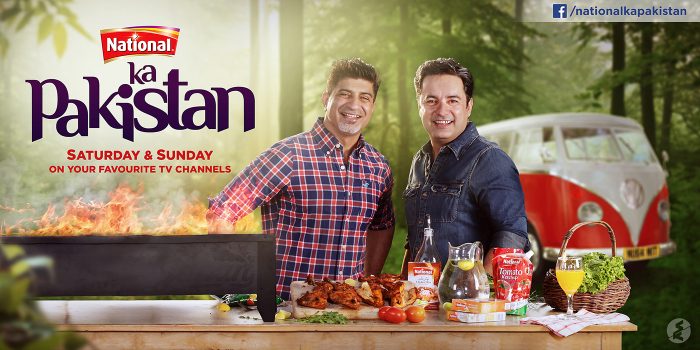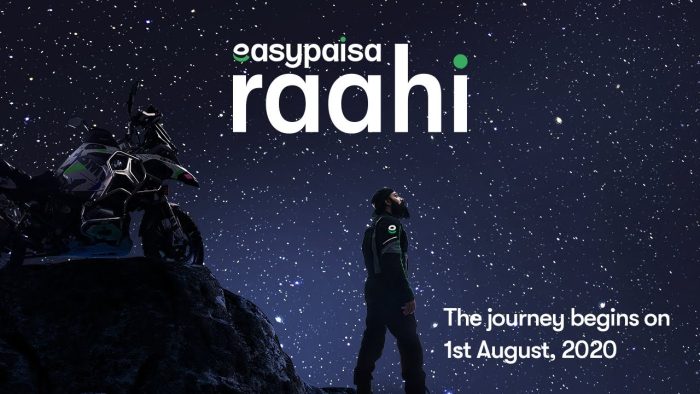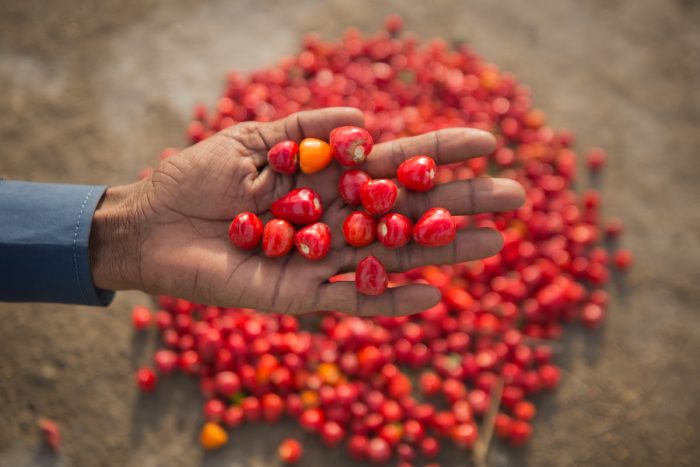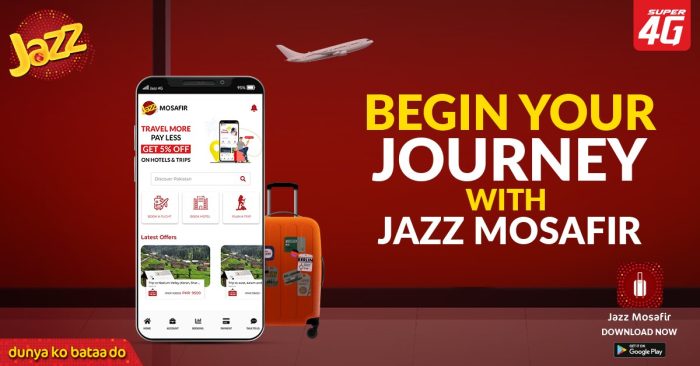When we hear the name of any person, thing, or brand, certain emotions rush through us about that particular character. These emotions drive the decision of liking and disliking, which can impact the overall image of those entities. This is why several companies spend substantial resources on creating positive imagery, which in marketing is known as branding.
The whole concept also applies to countries. If you take the name of any country, a series of images will run in your mind that generate a gush of sentiments based on the reputation of a nation. With regard to countries, this image or prestige is called Nation Branding.
What Exactly is Nation Branding?

Nation branding does not mean having a logo for a specific country; it revolves around the perceptions and reputation that a state has across the world.
Jose Filipe Torres, Founding Partner & CEO of Bloom Consulting – known to develop Nation Branding and city Branding strategies for various governments; in his explanation, he stated: “Nation Branding is not about the logo. I ask you, what is the logo of France, what is the logo of Japan, but when I say the names of these countries, an emotion, a perception is in your mind, and that’s the brand, not the logo”.
It’s essential for countries to work on their reputation because it directly impacts the economic and social condition of a country. A nation with a good perception has a leading edge facing other states.
In the case of Pakistan, a concrete strategy for national branding is inevitable. The country has faced a negative perception of being a state with limited resources, internal divisions, and infrastructural challenges for a prolonged period. Words like political chaos, terrorism, and weak law enforcement conditions have become Pakistan’s synonyms.
However, the situation can change if we use the strengths and opportunities by establishing a solid brand image. The question is, what can be a powerful tool to re-strength Pakistan’s impression?
The answer is in nature itself, as our land has the blessing of natural landscapes and historical marvels. Hence, tourism is a viable answer to how we solidify national branding. Promoting beautiful areas, culture, cuisine, and diversity would not only attract more international tourism but also re-structure Pakistan’s reputation.
Pakistani Brands Taking an Interest in Changing its Image with Tourism
A research study by Linnaeus University in Sweden unveiled that tourism initiatives are a source of uplifting the nation’s brand image. The goal can be accomplished by tourism attractions that carry cultural values in businesses and activities. The researchers added that tourism can be a source of identity production.
Similarly, another research by Fatima Jinnah Women University & Institute of Policy Studies noted that tourism has a significant role in branding the nation. It highlighted that Pakistan also has a larger opportunity to promote tourism because of religious diversity that includes Katas Raj temples, Guru Nanak Sahib and Kartarpur Gurdwaras, Takhat Bhai, and many other sites sacred to multiple religious groups. This means Pakistan is not only home to Islamic sites but also has a lot to offer for followers of Islam, Hinduism, Sikhism, and Buddhism, along with mesmerizing northern valleys and eye-glaring coastal areas.
For quite some time, foreign tourists have been visiting Pakistan and recording their experiences – which are mostly positive. However, it is not a stable method of nation branding as the rate of tourist visitors varies from time to time which affects the frequency of messaging. Secondly, strong nation branding originates on messages that a country produces and narrates itself.
Luckily, there have been multiple brands that integrated the tourism factor and played a vital part in fostering a praising image of Pakistan. Their communication of the landscapes, cuisine, and people is a solid example of using tourism for nation-building.
The dedication of the brands in logistics, production, and overall campaigning tells of their enthusiasm in narrating the stories encapsulated by the landscapes.
National Ka Pakistan

It won’t be wrong to call National a trendsetter as it adopted the idea of documenting the travelling series that showed the diversity of Pakistan and helped in National Branding. The food brand started a series with the name ‘National ka Pakistan,’ which originated in 2012 as a television series. The uniqueness of the concept was it explored desi specialities of several areas and brought the recipes of food that make a specific culture stand out. Chef Saadat led the series as a host, explorer, and chef.
We all know that food is a symbol in Pakistan of particular cultures and makes the connection with the masses in a unique way. The travelogue highlighted several local communities like Hindu, Sikh, Siraiki, Balochi, and many more by highlighting the food culture and stunning tourist spots. As it evolved to six seasons and a footprint on digital mediums, it helped convey a different image of Pakistan because from 2012 to 2015, the country had a distorted image mainly due to security concerns.
Since the social media was growing after 2015, National also launched #NationalKaPakistan, which instantly got hit among influencers who then used it to make content about their particular communities and food.
EasyPaisa Raahi

Popular Pakistani singer – Umair Jaiswal and EasyPaisa joined hands to form a breathtaking documentary series that featured Umair as a traveller who explores the country on a bike. The series came right after the pandemic and bagged a lot of praise from the masses.
The premise of the series showed that Umair travelled across the country on his motorcycle, and on that journey, he met people from different origins & cultures. Raahi also featured personalities like the original motorcycle girl – Zenith Irfan, adventurer Moin Khan (known for his trip to Pakistan from San Francisco), Ali Azmat, and others.
The ultimate vision of EasyPaisa Raahi resonated with the idea of national branding. By documenting scenic landscapes, EasyPaisa used tourism as a tool to position Pakistan’s name in a way that it can earn a positive reputation.
The campaign also impressed the marketing experts and won a bronze award in the Marketing Disruptors category during the prestigious Effie Awards 2021.
Google Museum of Food

In October 2023, what Google did indirectly played a significant role in national branding, and once again, tourism became the prime medium. Sharmeen Obaid-Chinoy, the Oscar-winning filmmaker, collaborated with Google Arts and Culture and the British Council to launch Pakistan’s Museum of Food. In the digital world, it was a perfect platform where Google featured Pakistan’s rich and diverse culinary landscape.
Till now, Pakistan’s Museum of Food stands as the biggest online gallery of Pakistani culture that has featured over 9000 Images, over 90 videos, and over 100 stories that capture the vibrant tapestry and celebrate the culture and heritage of all provinces.
Google’s initiative captured several aspects that communicated a more progressive image of Pakistan’s landscape. It highlighted the sustainable agricultural practices by Samina Nazir’s PODA (Potohar Organization for Development Advocacy). In addition to that, it brought forward the role of women in preserving culture and their substantial contributions to agriculture.
The portal has talked about Pakistani flavours like the sugarcane of Ranipur, Empress Market spices, Kunri red chiles, Pasni salt, and much more. The world can digitally witness the Hunza Valley organic delicacies, Burns Road – Karachi, meat-centered offerings of Peshawar, and Gwadar seafood all in one place.
All in all, the Pakistan Museum of Food has used the tourism tool most effectively, which has provided a global platform to the global Pakistani diaspora and played a vital part in national branding.
Jazz Mosafir App

In the telecommunication sector, Jazz has been one of the oldest brands operating in almost all regions of the country. Their contribution to tourism came in the form of ‘telco tourism’ by launching the Jazz Mosafir platform.
It was an interesting initiative as tourism got connected with the digital world, which can serve the needs of tourists and provide a developed image of the country. Jazz Mosafir became the first Telco-based online travelling platform that offered airline ticketing, hotel bookings, and tour bookings. Mosafir also offered news alerts on road blockage, weather alerts, SMS alerts for motorway blockage due to fog, and flight reminders.
In June 2023, The Khyber Pakhtunkhwa Culture and Tourism Authority and Jazz Mosafir signed an MOU to boost tourism and ensure travellers’ safety 24/7 through disaster risk reduction, responsible tourism, and vigilance. The Director General of KPCTA, Mr Muhammad Bakhtiyar Khan, said that the MoU aimed to enhance local tourism as part of the government’s dedication to the hospitality sector.
Government Tourism Initiatives for Nation Branding: A Tale of Struggle
When it comes to the government taking an interest in using tourism for nation branding and introducing reforms that would help boost tourism, there seems to be a chaotic situation that disallows any progress.
In 2019, when Imran Khan presented his election manifesto, he stated that Pakistan Tehreek-e-Insaf would display the country as ‘Asia’s Best Secret’ in the world’s tourism market. He showed the aim to promote religious tourism through Punjab, Baluchistan and Sindh and develop 20 new tourist destinations in his five-year tenure. Imran’s government said to promote tourism as a top priority. However, their only substantial achievement was the inauguration of the historic Kartarpur Corridor for Sikh pilgrims on Guru Nanak’s 550th birth anniversary.
There was also a project by the Tourism Development Corporation of Punjab (TDCP) in 2019 to install glamping pods on tourist sites to provide tourists with low-priced accommodation. TDCP installed glamping pods in Patriata, Murree, Kotli Sattian, Soon Valley, and Changa Manga, but it hardly gained any proper recognition.
By 2020, problems for tourism started to pile up as the Pakistan Tourism Development Corporation (PTDC) had to close all its motels in northern areas due to continuous financial losses. The tourism industry called this decision a huge setback as the motels provided tourists with an ideal resting spot. PTDC, a key component in promoting tourism, closed its motels in Chitral, Gilgit, Swat, and Naran. A year before that, the tourism department closed its motels at Taxila, Chattar Plain, Astak, Khuzdar, Chakdara restaurant, and Daman-i-Koh restaurant.
In January 2023, the federal government initiated the procedure to take back motels of the Pakistan Tourism Development Corporation (PTDC) from the provinces. It was unveiled that the provincial governments attained the motels without meeting the laid-own procedure.
Shehbaz Sharif-led government in 2023 tried to promote tourism for better imaging of Pakistan by launching a digital portal called Salam Pakistan. The vision was to increase tourists’ interest from across the world and portray Pakistan’s diversity in tourism internationally. Salam Pakistan had information on top tourist destinations, including K2, Gwadar, Ziarat Valley, Uch Sharif, Deosai National Park, Kalash Valley, Takht Bhai, Hingol National Park, Shandur Pass, Kambhar Lake, Fairy Meadows, and others. However, the portal has gained hardly any recognition at both national and international levels. There is no noteworthy social media presence of the portal which hinders its publicity among youth. Moreover, it has not taken advantage of YouTube and TikTok for promotion and advertising.
If Brands are the Solution to Promote Tourism for Nation Branding, What Could Be the Way Forward?
Looking at the overall progress of campaigns launched by brands against government initiatives, it is apparent that brands have the potential to promote tourism, leading to better nation branding. But a slight decline has occurred in the kind of campaigns discussed earlier. It’s not that the tourism sector has no more potential, but current circumstances have created a few hurdles.
To discuss this point, Fizza Shah – Executive Creative Director, and Syed Sajid Abbas – Creative Director of IAL Saatchi & Saatchi, spared some time and shared their insight based on the experiences they had while working on campaigns by brands for tourism.
Fizza and Sajid reinstated the fact that Pakistan has a gift of rich culture. Its cultural elements like music, arts, culinary, and landscapes could uplift tourism and ultimately foster nation branding.
However, they pointed out that the current financial situation makes it hard for brands to continue campaigns like National Ka Pakistan, Pakistan Ka Plus Zeera Plus, or EasyPaisa Raahi.
“Brands are not going for these campaigns because of inflation as these initiatives are high cost due to travel and production,” said Fizza and Sajid.
They added that the agency pitches several ideas involving tourism and culture, but high rates make it impossible to pull off such campaigns. The creative leads believed that the tourism ministry has to buckle up to create a difference as several brands want to work on tourism campaigns and have the potential to showcase our culture.
“Many brands are willing to work on the concept. For example, Toyota worked with Ye Tera Pakistan Hai Ye Mera Pakistan Hai by focusing on the music culture of each province. It would be great if the tourism ministry integrates its point of view as well to enhance tourism and nation branding,” commented Sajid and Fizza.
It is evident that political chaos and instability of government offices create difficult situations for several sectors, and tourism is no exception. No one can deny that tourism can be a great tool for having a deep effect on cultivating an attractive position for Pakistan at the global level. But like always, we lack visionary planning and solid execution, which has once again stopped us from bringing forward what Pakistan looks like in reality and its true image.

